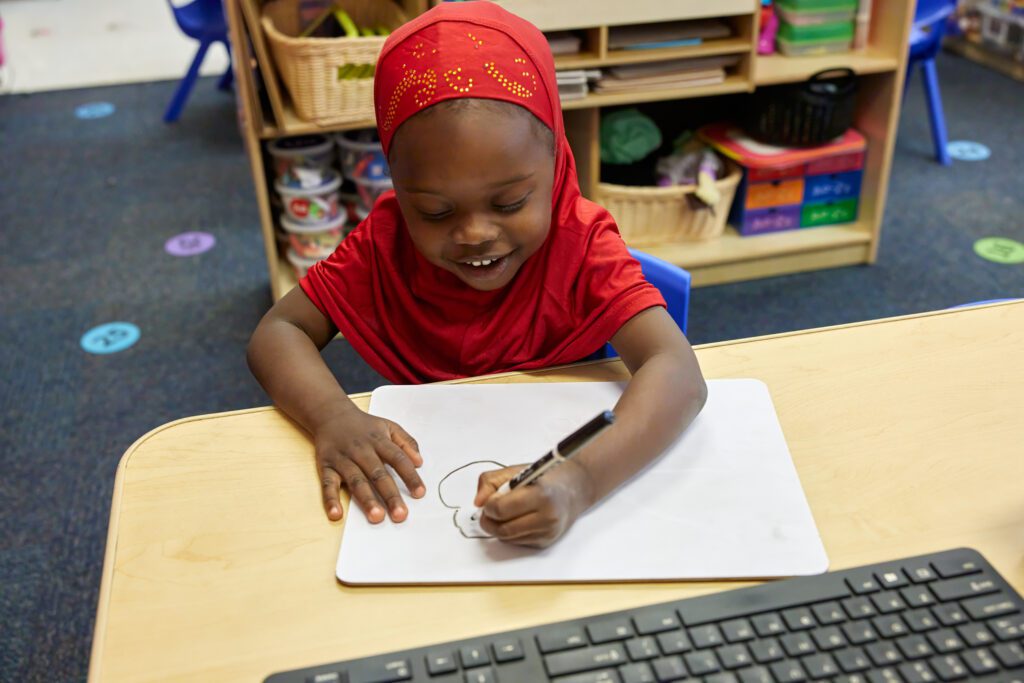Early Literacy Certification: Why It’s Important for Teachers


The data is in—in a February 2024 survey conducted by Teaching Strategies, many early childhood educators said they are not very familiar with the science of reading, and even fewer said they feel prepared to use it in their teaching. As educators and leaders who care about children and their developing reading brains, we should feel compelled to make changes. As a trusted leader in early childhood education, Teaching Strategies is responding with urgency to support teachers by introducing a new early literacy certification pathway anchored in the science of reading.
For years, researchers have studied the phenomenal, often unbelievable, process of how humans become readers. More than two decades ago, researchers asserted that for young children, quality instruction can be “the single best weapon against reading failure,”1 and for good reason: early childhood is an important time for brain development; identity formation; and accelerated growth in knowledge, skills, and abilities. Early childhood teachers should be given early literacy and science of reading professional development that is research-based and provides guidance on making practical application of these theories so that supporting the complex reading process feels achievable.
Five Ways an Early Literacy Certification Benefits Teachers
An early literacy certification prepares early childhood education teachers for incorporating research from the science of reading into their everyday practices. Here are five benefits teachers will gain from an early literacy certification as they engage children in literacy learning and progress in their careers.
- Knowledge about how young children learn and develop language skills—the foundation needed for skilled reading to develop later—to empower teachers to create more effective and enjoyable language and literacy learning experiences
- Strategies for creating fun and engaging learning environments that center relationships, promote play, and encourages lots of discussion so children associate learning to read with joy
- Specialized information and training on using assessment data in a multi-tiered system of support to look for signs that a child may be struggling in a language or emergent literacy area and could benefit from additional support
- Up-to-date information on the best strategies to support young, emergent readers, including information on how to partner with families on supporting language and literacy at home in more intentional ways
- Opportunities to meet the literacy training and professional development requirements that many states and school districts have adopted
When early childhood teachers are trained in early literacy, program leaders, teachers, families, and children benefit in these significant ways.
- Program leaders may see data-based improvements in children’s language and literacy outcomes and can report that information to their key stakeholder groups.
- Teachers may finish a certification program with more knowledge and confidence that they have the skills to provide learning experiences that are fun and rigorous to support children’s language and literacy development.
- Families may feel better connected to their children’s school experience and feel more assured that their children are receiving high-quality learning experiences.
- Children may have more opportunities to refine their language skills and develop their emerging reading and writing skills in the ways they enjoy best—from an adult who cares about them and their success, with their peers, and in environments that are fun.
Overall, providing early childhood teachers with the opportunity to be certified in early literacy creates a supportive, informed, and proactive environment that benefits children’s learning and development, enhances program quality, and fosters strong partnerships with families.

Early Literacy Certification: Foundations of the Science
of Reading
Bring science of reading theory and practice to your program with our NEW certification program.
1. Snow, C., Burns, S., and Griffin, P. (1998) Preventing Reading Difficulties in Young Children. National Academy of Sciences – National Research Council, Washington, D.C. Commission on Behavioral and Social Sciences and Education.


